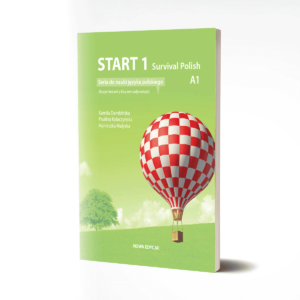Folk superstitions and superstitions have been with us since time immemorial. Due to its nature, it is a controversial topic. There are people who refer to them with detachment or completely ignore them. On the other hand, you can certainly find a group of people who are guided by their meaning in many situations. It is worth noting that such beliefs are not only found in Poland. Superstitions characteristic of a certain community function in almost every corner of the world. Sometimes these superstitions are very different from each other, and sometimes their meaning is practically identical. What Polish folk superstitions are most popular? What do such beliefs concern? What do we know about their origins? Why do they sometimes rule people to such an extent? What makes some superstitions able to stand the test of time and are also valid in the present, while others are less known? Should one believe in them? Polish superstitions and superstitions – what does their future look like? Find out the answers to these questions now!
Superstition and superstition – check the definition of these terms
Superstition and superstition are two terms that are quite often considered synonymous words, used interchangeably. According to the definition, it is an unfounded, firmly rooted, erroneous and unsubstantiated belief according to which specific events, signs, words or things have a mysterious, supernatural influence on many aspects of human life. Superstitions are a kind of remnant of ancient belief systems. So, they will be any magical practices that bring good luck or protect from bad luck, related to worship and divination. In their case, it is difficult to find a rational basis, and it is also difficult to verify their veracity, and even coincidence is enough to begin to cultivate them. Polish folk superstitions (otherwise also known as gusl) are associated with animals, or situations we encounter in everyday life (high school graduation, college exams, marriage, travel, death of a family member), as well as weather phenomena. Sometimes even a seemingly ordinary object grows into a symbol, to which a certain meaning is given. What is important here is the cause-and-effect sequence between certain events – a given behavior produces an effect. The genesis of superstitions and superstitions existing in the consciousness lies in folk traditions, customs typical of a particular region, or folklore culture. Such beliefs are most often encountered in rural areas, where they are passed down from generation to generation. Practice shows that some superstitions have great power, are very deeply rooted in the culture and function even today, that is, in the 21st century, when modernity seems to be taking the lead. Sometimes people who believe in superstitions are considered backward and uneducated.
What are the most popular superstitions, what do they mean and where did they come from?
Want to know the most widespread Polish folk superstitions? Check out right now what they mean and the origin of these superstitions, which you may encounter most often:
- The number thirteen – it is considered extremely unfavorable and brings bad luck and misfortune, people try to avoid it, for example, do not use rooms with such a number in hotels,
- black cat running down the road – this animal is associated with witches, so it augurs bad luck and danger,
- broken mirror – a view known since antiquity indicates that this foretells seven years full of misfortune and failure,
- finding a four-leaf clover – due to the fact that it is quite rare, finding one is something special, bringing luck and joy; sometimes it is even recommended to eat it or put it in your shoe,
- Spilling salt – when you accidentally spill this food product from the salt shaker at home, there is a risk that the household members will give vent to their accumulated anger and a brawl will ensue,
- Knocking off the unpainted wood – this is a preventive action to make one move away from negative energy and protect oneself from evil powers,
- putting the purse on the floor – such activity makes the money in the wallet escape faster,
- bringing good luck horseshoe – this is a symbol of good fortune and positive events, so it is common to hang a horse shoe (in a U-like position) over the front door of a house, which ensures that everyone living there is lucky every day,
- walking under a ladder leaning against a wall – even if done unknowingly, it can bring great bad luck,
- meeting with a chimney sweep – seeing a person in this profession, you should as soon as possible touch the button sewn to the clothes you are wearing at the moment, this will bring good luck, fortune and the fulfillment of your fondest dreams,
- greeting or saying goodbye across the threshold – shaking hands or hugging right there does not affect the relationship of these people well, moreover, it carries the risk of attracting evil powers from outside into the house,
- Sitting on the corner of the table – this is a superstition relevant to all women, as it is said that a maiden who occupies such a place will not find a husband,
- getting out of bed with the left foot – such a start to the day does not bode well, on the contrary, it predicts that in the following hours the person will be accompanied by bad luck, and the bad mood will persist until the evening,
- red ribbon by the child’s stroller – this protective amulet is supposed to protect the toddler from the crooked gazes of others and casting a spell on him,
- lucky coin – finding a coin on the street is a good omen, especially if the coin is found „eagle-eyed”; it is then a source of good luck and a harbinger of an influx of cash,
- not shortening hair before graduation – visits to the hairdresser to cut hair are not allowed from the prom until the end of the exams, otherwise there would be a shortening of someone’s knowledge,
- Itchy hands – as a rule, hands itch especially when they are unwashed, but following superstitions, one can point out that an itchy right hand announces meeting and greeting someone you haven’t seen in a long time, while an itchy left hand means receiving a gift of some kind,
- getting married in a month with the letter R in its name – this will ensure the happiness of the spouses, which is why such ceremonies are less often held in May or November,
- The bride’s dress – in order to ensure happiness in choosing it, a friend, sister or mother can help, before the wedding day the future wife should only put it on for a fitting, the groom should not see his partner beforehand in the dress she has chosen,
- carp shells carried in the wallet – this Christmas Eve tradition is a guarantee of prosperity for the whole of the following year, it is also a safeguard against money theft and is supposed to ensure financial improvement,
- meeting a nun – is a source of bad luck, it may mean that in the near future someone from our immediate environment will become seriously ill, or even pass away from this world.
Polish folk superstitions and superstitions – is it worth believing in them? Summary
This list of Polish folk superstitions and superstitions in force in different regions of our country shows that over the years a lot of such beliefs have really taken shape. And at the same time it is worth noting that these are only selected examples. Probably, without much difficulty, one could list several more well-known, as well as those slightly less popular beliefs. Are you superstitious? Or perhaps Polish folk superstitions and superstitions do not impress you at all? No matter what answer you give to the questions posed earlier, there is rather nothing to prevent you, if only out of sheer curiosity, from memorizing the information presented above. No matter how you look at it, after all, this is an element of our culture, the existence of which is worth knowing. Do we need such beliefs at all? People tend to use mechanisms that facilitate their understanding of the reality around them. Accordingly, they follow stereotypes, or the superstitions and superstitions described earlier, for ease. This is an advantageous solution for them, giving them a sense of security, allowing them to exercise control over the situation and minimizing their fear of the unknown. So it is worth approaching this topic with reason, and superstitions can sometimes cheer up our lives. Giving in blindly to such thinking will do more harm to yourself than help – it is better to take fate into your own hands and be fully responsible for all your actions.





